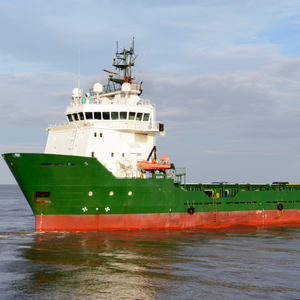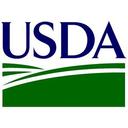US biodiesel group seeks more options to curb Argentine imports

Photo: Genscape Inc.
June 29, 2017
BY Ron Kotrba
The National Biodiesel Board’s Vice President of Federal Affairs Anne Steckel said the NBB Fair Trade Coalition will use “every legal tool available to address unfairly traded imports” of biodiesel from Argentina. The comment came as a result of NBB indicating new data show U.S. biodiesel imports from Argentina have spiked in April to a five-month high, and significant volumes are expected in June as well.
In March, the NBB Fair Trade Coalition filed petitions with the U.S. Department of Commerce and the U.S. International Trade Commission alleging that increased volumes of subsidized, dumped biodiesel from Argentina and Indonesia have eroded market share from U.S. biodiesel producers, causing material injury to the industry NBB represents.
“Subsequent to the filing of the petition, Argentina substantially reduced its export taxes on biodiesel, and then lifted those taxes this month—contributing to the increase in shipments and exacerbating already challenging circumstances for U.S. producers,” the NBB stated.
Steckel said, “We’ve received information of potentially 75 million gallons of biodiesel flooding our ports soon—a significant increase from the import levels we saw in January, February and March. We filed the petition to level the playing field for U.S. producers, and the NBB Fair Trade Coalition will use every legal tool available to address these unfairly traded imports.”
Advertisement
The NBB Fair Trade Coalition can make a request for what’s called “a finding of critical circumstances.” If granted, this would allow the U.S. government to retroactively impose duties on imports up to 90 days prior to the commerce department’s preliminary determinations, in which the estimated rates of subsidization and dumping are expected Aug. 22 and Oct. 20, respectively.
“The Argentinian government has adopted numerous subsidy programs benefiting Argentinian biodiesel producers,” NBB stated. “With such support, Argentinian biodiesel producers have become dominant exporters and taken an increasingly greater share of the U.S. market through dumped prices. This has negatively impacted the financial condition of the U.S. industry, causing U.S. producers to pull back on investments in what continues to be a growing market.”
Advertisement
Related Stories
Montana Renewables LLC has delivered its first shipment of 7,000 gallons of SAF to Dearborn, Michigan's Buckeye Pipeline facility. From there, the fuel will be transported to the Detroit Metropolitan Airport via pipeline for use by Delta Air Lines.
NYC took a monumental step towards clean air and a sustainable future on Jan. 11 with the grand opening of the city's first retail fuel station dispensing renewable diesel. The project is a collaboration between Sprague and Sonomax.
The USDA on Jan. 11 awarded $19 million under the Higher Blend Infrastructure Incentive Program. The grants will support projects in 22 states to expand the availability of higher ethanol and biodiesel blends.
Jet Aviation partners with World Fuel Services to offer SAF in Bozeman, Montana, and Scottsdale, Arizona
Jet Aviation announced on Dec. 22 that it has signed an agreement with World Fuel Services to secure and offer sustainable aviation fuel (SAF) on-site at its FBOs in Bozeman, Montana, and Scottsdale, Arizona, effective immediately.
Neste has partnered with Coleman Oil Company, a leading provider of fuels, biofuels, lubricants, and related products, to enable cities and businesses to have easier access to Neste MY Renewable Diesel in the state of Washington in the U.S.
Upcoming Events










